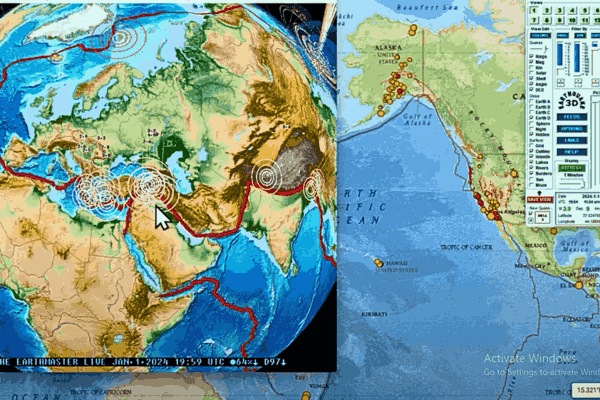MIT Study Revelation
A new study from MIT suggests that intense weather events, such as heavy snowfall and rainfall, may be triggering an Earthquake Swarm.
The research, focused on Earthquakes in Japan, found a correlation between seasonal periods of heavy precipitation and Swarms of Earthquakes. This discovery could help scientists better understand the complex interactions between climate and seismic activity.
Understanding An Earthquake Swarm
Earthquake Swarms are sequences of seismic events that occur in a localized area over a short period. Unlike major Earthquakes, there is no single primary shock in an Earthquake Swarm. Scientists have long been puzzled by the lack of a clear trigger for these swarms. However, recent research has shed light on a possible connection to climate events.
She Noto Peninsula Swarm
The Study focused on a Series of Earthquakes that have been occurring on Japan’s Noto Peninsula since late 2020.
Researchers found that the start of the Earthquake Swarm coincided with periods of heavy snowfall and rain. This led them to investigate whether these weather events could be influencing the Seismic activity.
Climate’s Impact on Earthquakes
The research team, led by former MIT research associate Qing-Yu Wang, analyzed Seismic data from the Japanese Meteorological Agency spanning more than a decade. They found that Seismic velocities changed in response to Seasonal precipitation patterns.
This suggests that changes in underground pressure, caused by heavy Snowfall and Rain, may be triggering the Earthquake Swarm.
Implications for Future Research
The findings of this study have significant implications for future research on Seismic activity.
By understanding the role of climate in triggering Earthquakes, scientists may be able to improve their ability to predict seismic events. This is particularly important in the context of climate change, as warming trends could lead to more extreme precipitation events and potentially more Earthquake swarms.
Conclusion on Earthquake Swarm Study
While the study focused on Earthquakes in Japan, its findings could have broader implications for understanding seismic activity worldwide. By studying the complex interactions between climate and Earthquakes, scientists hope to gain a better understanding of these natural phenomena and improve their ability to mitigate the risks associated with seismic events.
Also Read : Xbox 360 Game Sale As Stores Begin To Close




